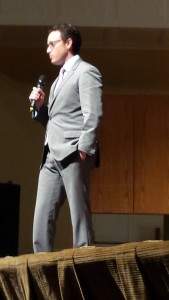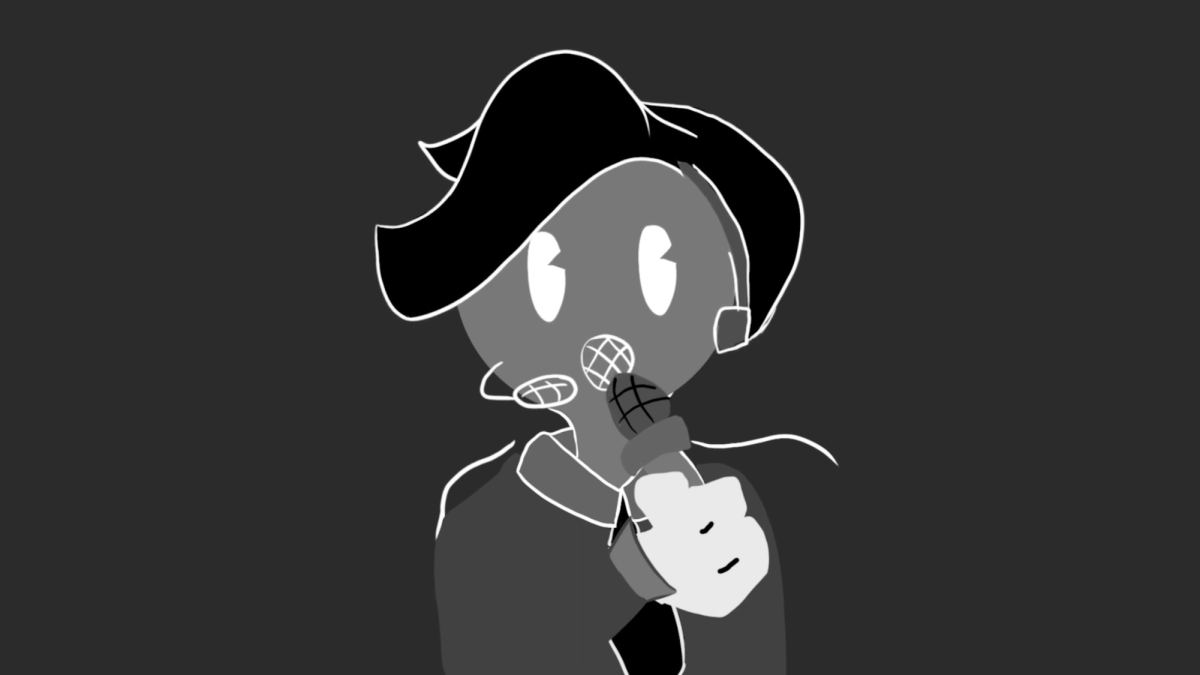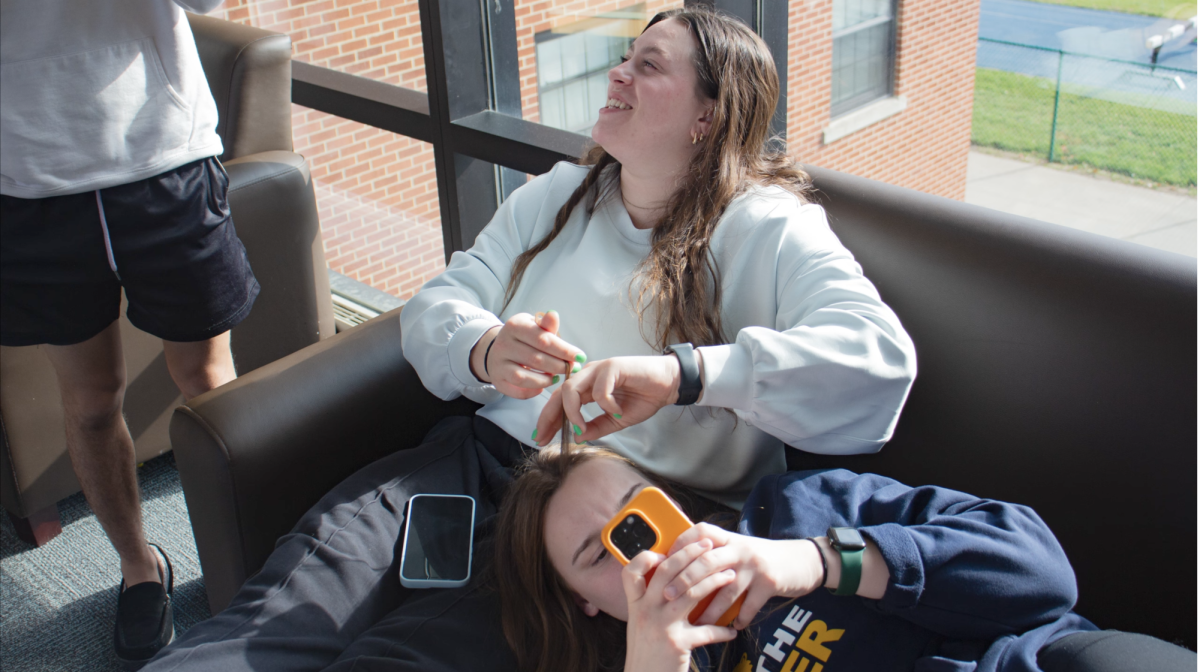Brittany Poeppe + Kyle Wiebers | Assistant Arts + Life Editor + Contributing Writer
“Whoever controls the media, the images, controls the culture.” –Allen Ginsberg
On February 11, 2016, Jeffery Bucholtz, (MA), gave two presentations at Buena Vista University (BVU), focusing on sexual  violence, gender, femininity, and masculinity. The first presentation focused on the difficulty of fighting against sexual violence because it’s a part of popular culture. Bucholtz began the first presentation by inviting students to sing along to popular songs, “Animals” by Maroon 5, and “Blurred Lines” by Robin Thicke. Freshman Madison Remi attended the first session and was surprised by the lyrics of such songs.
violence, gender, femininity, and masculinity. The first presentation focused on the difficulty of fighting against sexual violence because it’s a part of popular culture. Bucholtz began the first presentation by inviting students to sing along to popular songs, “Animals” by Maroon 5, and “Blurred Lines” by Robin Thicke. Freshman Madison Remi attended the first session and was surprised by the lyrics of such songs.
“They’re such popular songs, and they’re so catchy. I had no idea that the lyrics and the music videos were so… rape-y,” Remi said.
The second presentation focused on masculinity in popular culture. Bucholtz explained that there are seven categories of “masculinity:” avoiding all things feminine, restricting emotions, being tough and aggressive, exhibiting self-reliance, having achievement and status, having non-relational ideas about sex, and actively engaging in homophobia. Bucholtz demonstrated the media’s use of each category by playing popular songs and clips from television shows and commercials.
In both sessions, Bucholtz discussed negative connotations society places with being a woman. In cases of sex, people negatively refer to women; it doesn’t matter if has had sex or not. Similarly, if a man is a virgin, he is negatively referred to as a woman. If a man doesn’t display characteristics from the categories of masculinity, he is often referred to as a “girl.”
“It’s terrible to think that in this culture, the worst thing to call a guy is a girl,” Bucholtz said.
Although the subjects of both presentations were serious, Bucholtz seemed to be relatable and made the presentations funny and light-hearted. At one point in time, he referred to young men as “Chihuahuas,” referring to the stereotype that men always think of sex.
In both presentations, he ended with a monologue about the seriousness of rape. Bucholtz is on a mission to end rape-culture and sexual violence, and he seemed to make his mission clear to students.
If you are interested in violence prevention and the end of rape-culture, visit Jeremy Bucholtz’s website, or visit the official Facebook page, We End Violence.













